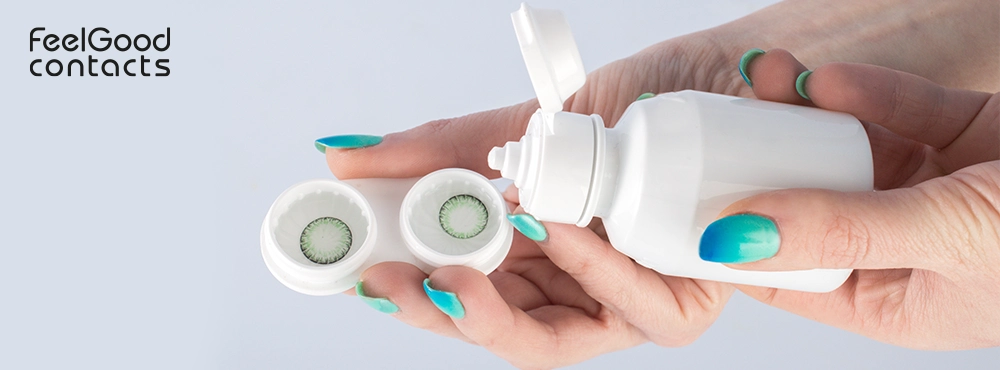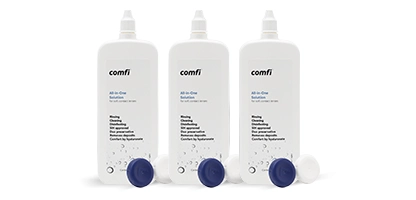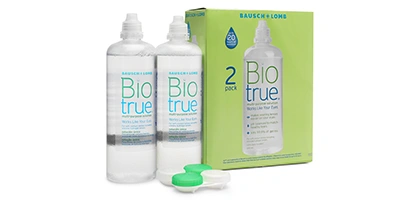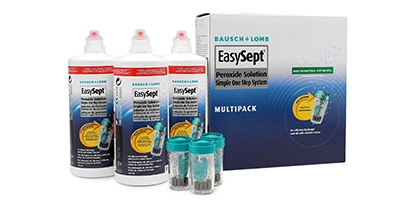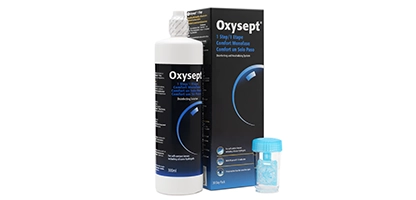Soft contact lenses are a convenient and effective way of correcting vision. To ensure they remain comfortable and hygienic, it's essential to clean and store them properly. Apart from daily contact lenses, all lenses must be cleaned and stored carefully, as they are meant for multiple wears. Tina Patel, Contact Lens Optician at Feel Good Contacts, says, “Failing to properly clean your reusable contacts, such as monthlies and two-weeklies, can cause several eye problems, including eye infection, inflammation of the cornea, redness, irritation and even vision loss. This is why it’s essential to follow a thorough contact lens cleaning process to ensure clear vision and promote good eye health in the long term.”
Learn in this detailed guide how to clean soft contact lenses, must-have essentials, different types of contact lens solutions, contact lens cleaning steps, their importance and common mistakes to avoid.
Contact lens cleaning steps
The following is a step-by-step illustration on how to clean soft contact lenses and store them.
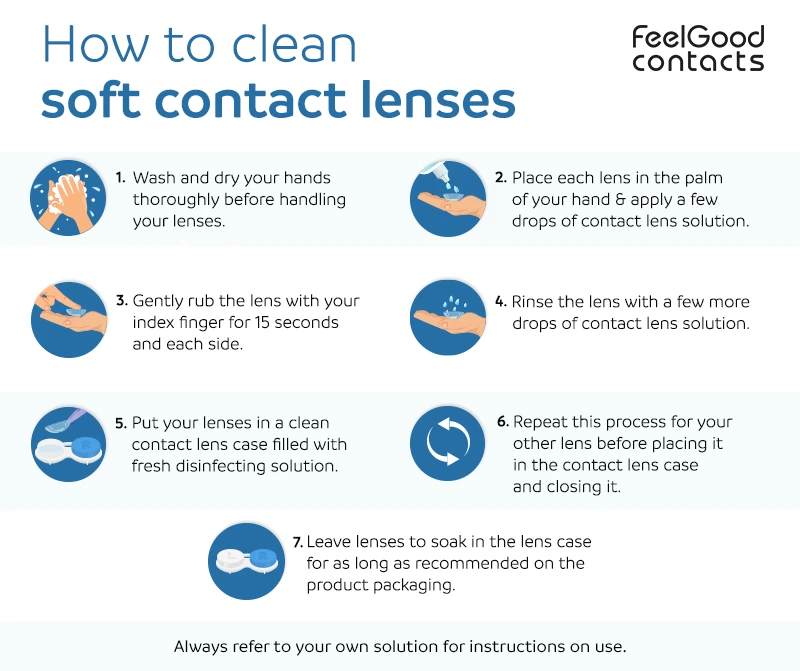
Must-have essentials for the best way to clean contacts
A thorough contact lens care regime requires certain essentials, including:
Contact lens case – Having a clean contact lens case is as important as knowing how to clean soft contact lenses properly. A clean lens case not only promotes good eye health but also keeps serious eye infections at bay. A dirty case can easily become a breeding ground for bacteria, fungi, and other microorganisms that can transfer to your lenses and then to your eyes, increasing the risk of conditions like keratitis, impaired vision and even permanent damage. It’s important to rinse the case with fresh contact lens solution regularly, wipe it with a clean tissue and allow it to air dry, to significantly reduce the risk of eye infections and keep your eyes safe and healthy. Knowing how to clean a contact lens case properly is fundamental in following lens hygiene tips. Replacing your case is just as important; always follow the manufacturer's advice.
Contact lens solution – There are different types of contact lens solutions available, such as multi-purpose, hydrogen peroxide and saline solutions. However, using the right contact lens solution is necessary to ensure cleaning contact lenses safely. Always consult your optician, as they can recommend a solution appropriate for your specific lenses and eye health needs. Wondering which contact lens solution do I need? A multipurpose solution is an all-in-one option for cleaning, rinsing, disinfecting and storing lenses, while a hydrogen peroxide solution is ideal for those with sensitive or allergic eyes, as it offers deep cleaning and more hygiene. Saline solution, on the other hand, is used only for rinsing lenses before putting them in; it doesn’t clean or disinfect lenses, making it inappropriate for cleaning your soft lenses.
How to clean soft contact lenses with a multi-purpose solution
Multi-purpose contact lens solutions are comprehensive solutions for cleaning, disinfecting, rinsing, and storing contacts. Opting for this solution not only offers convenience but is also a cost-effective and time-efficient alternative, sparing you the hassle of purchasing multiple products. Follow the steps mentioned above to clean your soft contacts using a multi-purpose solution.

 Offers
Offers Account
Account
 Favorite
Favorite
 Basket
Basket

 OFFERS
OFFERS











